Spread Betting Indices: Navigating Global Markets with Leverage and Strategy
Welcome to our guide on spread betting financial indices. If you’re new to the world of trading or looking to deepen your understanding of leveraged products, you’ve come to the right place. Spread betting has become a popular method, particularly among traders in the UK, to speculate on the price movements of various financial assets, including major stock market indices, without ever owning the underlying asset. It offers a unique combination of accessibility, leverage, and tax advantages that can be very appealing, but it’s also crucial to understand the significant risks involved.
In this comprehensive exploration, we will break down the mechanics of spread betting specifically as it applies to indices. We’ll discuss why indices are such a compelling market for this type of trading, delve into the powerful yet potentially perilous concept of leverage, examine the regulatory landscape that shapes this industry, and equip you with practical considerations for navigating these dynamic markets wisely. Our goal is to provide you with the knowledge you need to approach index spread betting with both confidence and caution, empowering you to make informed decisions on your trading journey.
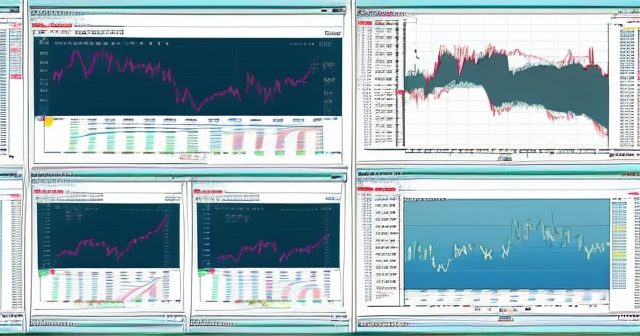
Let’s begin by clarifying what we mean by a financial index. Essentially, a financial index is a statistical measure that tracks the performance of a specific group of stocks or other assets. Think of it as a basket containing shares from various companies. The value of the index reflects the collective performance of the assets within that basket. For example, the FTSE 100 tracks the 100 largest companies listed on the London Stock Exchange by market capitalisation, providing a snapshot of the UK’s blue-chip market health. Similarly, the S&P 500 offers a broad view of the US market by including 500 large companies across different sectors.
- Indices are a measure of multiple stocks: Represent a collection of stocks to gauge market performance.
- Accessibility: They allow traders to speculate on market trends without owning shares.
- Leverage benefits: Traders can gain exposure to significant market movements with less capital.

Why are indices particularly suitable for spread betting? Unlike buying or selling individual stocks, trading an index allows you to speculate on the overall trend of an entire market sector or national economy. This can sometimes feel less complex than analysing a single company’s financials and prospects. Instead, you focus on broader themes: macroeconomic data releases, shifts in market sentiment, central bank policies, or significant geopolitical events. These factors tend to influence many stocks within an index simultaneously, leading to discernible trends.
When you spread bet on an index, you’re betting on whether its value will rise or fall. You don’t own any shares in the constituent companies. Your profit or loss is determined by the difference between the index’s price when you open your position and its price when you close it, multiplied by the amount you stake per point of movement. This ‘per point’ mechanism is fundamental to how spread betting works on indices.
Popular Indices for Spread Betting
| Index | Description |
|---|---|
| FTSE 100 (UK) | Represents the UK’s largest companies. Highly sensitive to global economic conditions and sterling’s value. |
| S&P 500 (US) | A benchmark for the US stock market, reflecting the performance of 500 leading companies. |
| Dow Jones Industrial Average (US) | A price-weighted index of 30 large US companies, often seen as a gauge of industrial health. |
| DAX (Germany) | Tracks the 40 largest companies on the Frankfurt Stock Exchange, a key indicator for the German economy. |
| Nasdaq 100 (US) | Composed primarily of technology and growth companies listed on the Nasdaq stock market. |
These indices offer significant liquidity and volatility, making them attractive for short-term trading strategies. Understanding what each index represents and the types of companies it includes is the first step in deciding which markets might be right for you.
The Mechanics of Index Spread Betting: Points, Stakes, and P&L
Let’s delve deeper into the practical aspects of how spread betting on an index works. As we mentioned, your profit or loss is calculated based on the movement of the index in ‘points’ and your chosen ‘stake’ per point. When you open a spread betting position on an index, your broker will quote you a ‘spread’ – a slight difference between the buy (bid) and sell (ask) price. This spread is how the broker makes money on the trade, similar to the difference in exchange rates at a currency booth.
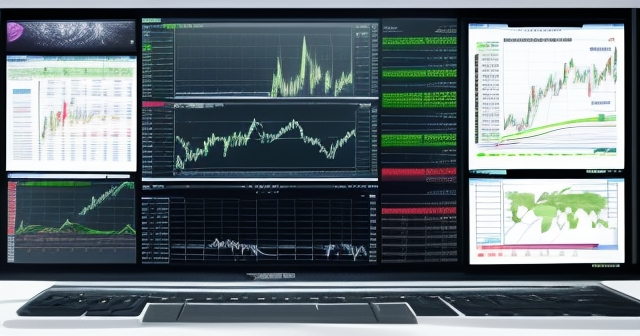
Suppose you believe the FTSE 100, currently trading at 7500, is going to rise. You decide to open a ‘buy’ or ‘long’ position with a stake of £10 per point. If the FTSE 100 then increases to 7550, and you close your position, the index has moved 50 points in your favour (7550 – 7500 = 50). Your profit would be 50 points * £10/point = £500. However, if the FTSE 100 fell to 7450, a move of 50 points against you, your loss would be 50 points * £10/point = £500, plus any financing costs for holding the position overnight.
The stake per point is entirely up to you and depends on your risk tolerance and account size. You could stake £1, £5, £20, or even hundreds per point. Naturally, a higher stake means higher potential profits, but also exponentially higher potential losses for the same point movement. This relationship between stake, points movement, and potential outcome is fundamental to understanding the risk profile.
Leverage: The Double-Edged Sword of Index Spread Betting
Leverage is arguably the most compelling, and simultaneously the most dangerous, feature of spread betting. It allows you to gain exposure to the full price movement of an asset by only putting up a fraction of its value as margin. If an index is trading at 7500 points, and your broker offers 20:1 leverage (meaning you need 5% margin), you could control a position equivalent to £7500 worth of index movement by depositing just £375 (£7500 * 5%).
This amplification of exposure is what makes leveraged trading so attractive. A small move in the index can translate into a significant percentage return on your initial margin. Using our previous example, a £500 profit on an initial £375 margin deposit represents a return of over 130%! However, this works just as powerfully in reverse. A £500 loss on a £375 margin means you have lost more than your initial deposit, potentially requiring you to add more funds to your account or face having your position automatically closed out by the broker (a margin call or stop-out).
| Leverage Impact | Description |
|---|---|
| High Potential Gains | The ability to amplify profits significantly through small market movements. |
| Increased Risks | Higher potential losses that may exceed the initial capital put up. |
| Margin Calls | A need to deposit more funds if losses exceed the margin limits set by the broker. |
The high percentage of retail client accounts that lose money when trading CFDs and spread betting, often cited in mandatory risk warnings, is directly attributable to the use of leverage. While leverage magnifies potential gains, it also significantly increases the speed and magnitude of potential losses. A small adverse market movement can quickly deplete your margin and lead to substantial losses, potentially exceeding your initial deposit.
Think of leverage like a powerful magnifying glass. It can help you see opportunities more clearly, but it can also intensely focus sunlight, creating a fire. Without careful handling, that power can cause significant damage. This is why understanding leverage is not just about calculating potential profits, but critically about understanding and managing the amplified risks.
Comparing indices to other markets like Forex or commodities in a leveraged context is also important. Indices can experience sharp moves based on economic news or sentiment shifts, similar to Forex, but their composition makes them sensitive to broader equity market dynamics. Commodities have their own unique drivers (supply/demand, weather, geopolitical events). Each market has a different volatility profile and underlying factors influencing price, which leverage will amplify. Understanding these differences helps you choose markets that align with your strategy and risk tolerance.
The UK Advantage: Tax Efficiency for Spread Betting Profits
One of the most significant attractions of spread betting, particularly for residents of the United Kingdom, is its unique tax status. Unlike trading traditional shares or even Contracts For Difference (CFDs) on certain markets, profits derived from spread betting are generally exempt from both Capital Gains Tax (CGT) and Stamp Duty.
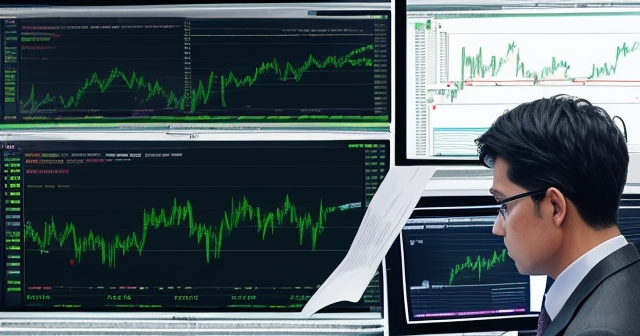
This tax efficiency stems from the fact that spread betting is legally classified as gambling in the UK, rather than investment. While this classification comes with the caveat that spread betting losses cannot typically be offset against other income or capital gains for tax purposes, the exemption from CGT can represent a substantial saving for profitable traders, especially compared to the taxes that might apply to gains from buying and selling shares or other investments.
For example, if you make a significant profit trading UK stocks directly or via CFDs, that profit may be subject to Capital Gains Tax above the annual allowance. However, an equivalent profit made through spread betting on the FTSE 100 would typically not be taxed. This tax advantage can notably improve the net profitability of a trading strategy, making spread betting a highly tax-efficient vehicle for speculating on market movements within the UK.
Regulatory Landscape and Provider Performance
The world of leveraged trading, including spread betting and CFDs, operates within a regulated environment designed to protect retail investors, though the level of protection and specific rules vary by jurisdiction. In the United Kingdom, the Financial Conduct Authority (FCA) is the primary regulator overseeing firms that offer these products to retail clients. The FCA has implemented significant measures in recent years to address concerns about the high risks associated with leverage.
These regulatory interventions have included imposing restrictions on the maximum leverage available to retail traders (often capping it at 30:1 for major Forex pairs and lower for indices and other assets), introducing mandatory negative balance protection (ensuring clients cannot lose more than their deposit), and requiring prominent, clear risk warnings on all advertising and platforms. You will often see statements like “X% of retail investor accounts lose money when trading CFDs with this provider.” This is a direct result of regulatory requirements aiming to make the risks unequivocally clear to potential traders.
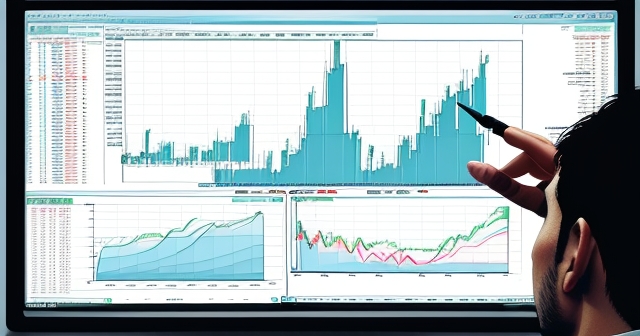
Understanding that you are trading with a regulated broker is vital. Regulation provides a layer of oversight and potentially recourse if issues arise. Regulated firms must adhere to specific rules regarding client money segregation, capital adequacy, and fair treatment of customers. Choosing a provider regulated by a reputable authority like the FCA offers a level of reassurance compared to using unregulated platforms.
Market Dynamics: How Macro Events Influence Index Movements
Trading indices means trading market sentiment and the impact of significant economic and political forces. Index movements are not random; they are a response to a complex interplay of factors. Understanding these drivers is essential for developing an effective trading strategy, whether you are focused on short-term fluctuations or longer-term trends.
Macroeconomic data releases are perhaps the most immediate and powerful catalysts for index movement. Reports on inflation (like the Consumer Price Index), employment figures (such as Non-Farm Payrolls in the US), Gross Domestic Product (GDP) growth, manufacturing data (like the Purchasing Managers’ Index), and retail sales can all significantly impact market expectations about the economy’s health and future central bank actions. Positive data might signal economic strength and lead to rising stock prices and indices, while weak data could trigger sell-offs.
| Events Influencing Indices | Impact |
|---|---|
| Macroeconomic Data Releases | Can prompt immediate reactions in market indices based on perceived economic health. |
| Central Bank Decisions | Interest rate changes affect market conditions and trader sentiment; generally bullish when rates are lowered. |
| Geopolitical Events | Political instability and conflicts can increase market volatility, impacting index prices significantly. |
Central bank decisions are another critical factor. Announcements regarding interest rates, quantitative easing programs, or changes in monetary policy outlook by central banks like the Bank of England (BoE), the European Central Bank (ECB), or the US Federal Reserve (Fed) can cause major swings in indices. Lower interest rates are generally seen as bullish for stocks as they reduce borrowing costs for companies and make equities relatively more attractive compared to bonds.
Geopolitical events also play a significant role. Political instability, elections, trade disputes (like tariffs), international conflicts, or major global health crises can introduce uncertainty into markets, leading to increased volatility and sharp index movements. For example, news related to Brexit heavily influenced the FTSE 100 and FTSE 250 indices for an extended period.
Risk Management: Your Shield Against Leverage’s Power
Given the inherent risks amplified by leverage, effective risk management is not optional when spread betting indices; it is absolutely essential for long-term survival in the market. Failing to implement robust risk controls is a primary reason why many retail traders lose money. Leverage means you can lose your initial deposit quickly, and potentially incur losses exceeding your deposit if markets move extremely rapidly against you (though regulatory protections like negative balance protection in the UK aim to limit this).
What does effective risk management look like in the context of index spread betting?
- Use Stop-Loss Orders: This is perhaps the single most important tool. A stop-loss order automatically closes your position if the market price moves against you to a predetermined level. It limits your maximum potential loss on any single trade. For example, if you buy the FTSE 100 at 7500 points with a £10/point stake, and place a stop-loss at 7480, your maximum loss on that trade is capped at 20 points * £10/point = £200 (plus any spread or slippage). Without a stop-loss, a sudden 100-point drop could cost you £1000.
- Consider Guaranteed Stop-Losses: While regular stop-losses can be subject to ‘slippage’ (where your order might be executed at a worse price than intended in volatile markets), some brokers offer ‘guaranteed’ stop-losses for a small premium (often charged within the spread). These guarantee execution at your specified price, regardless of market gaps or volatility, providing absolute certainty on your maximum loss.
- Use Limit Orders: While stop-losses protect against losses, limit orders help you lock in profits. A limit order automatically closes your position if the market price reaches a predetermined favourable level. If you buy the FTSE 100 at 7500, you might place a limit order at 7580 to take profit if it rises 80 points, securing a potential £800 gain.
Conclusion: Navigating the Opportunities and Risks
Spread betting on financial indices offers UK-based traders a compelling avenue to speculate on the movements of major global markets. Its primary appeal lies in the accessibility it provides to diverse markets, the potential for amplified gains through leverage, and the significant advantage of being generally exempt from Capital Gains Tax and Stamp Duty in the UK.
We have explored what financial indices are, why they are popular for spread betting, and the core mechanics involving points and stakes. We’ve also taken an in-depth look at leverage – its power to magnify profits and, crucially, its potential to accelerate losses. Understanding that leverage is a double-edged sword is not just academic; it is vital for protecting your capital.
We discussed the regulatory environment, highlighting the role of the FCA in implementing measures to enhance investor protection, such as leverage limits and mandatory risk warnings. While regulation adds a layer of safety, the high percentage of retail accounts losing money underscores that the ultimate responsibility for managing risk lies with you, the trader.
Most importantly, we stressed the non-negotiable importance of robust risk management. Tools like stop-losses, limit orders, and careful position sizing are your essential defenses against the volatility and leverage inherent in index spread betting. Practicing with a demo account before live trading is a prudent step in building experience and testing your approach in a risk-free environment.
spread betting indicesFAQ
Q:What is spread betting?
A:Spread betting is a form of speculation on the price movements of financial assets without owning the underlying assets.
Q:How do indices work in spread betting?
A:When trading indices, you bet on whether the index value will rise or fall, with profits or losses based on point movements.
Q:What are the tax implications of spread betting in the UK?
A:Spread betting profits are generally exempt from Capital Gains Tax and Stamp Duty, offering a tax advantage for UK traders.
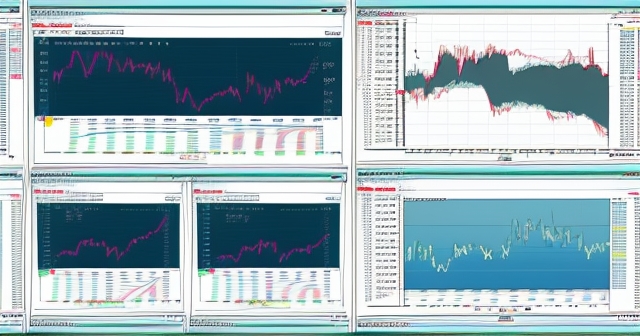
留言